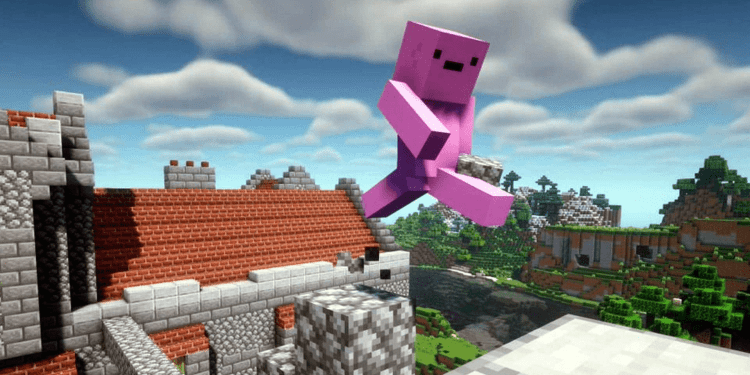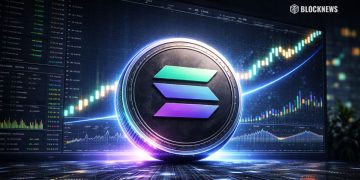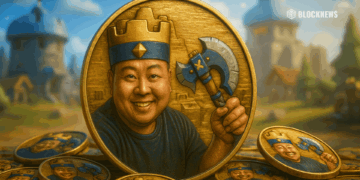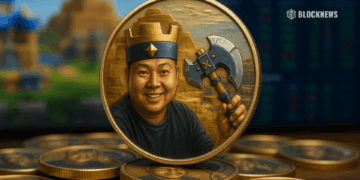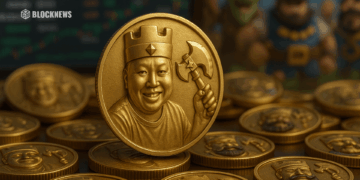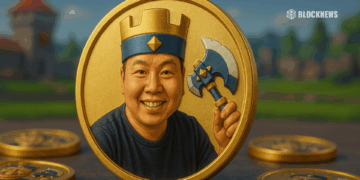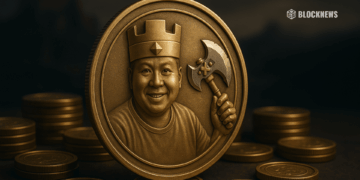Decentralized game Blockverse was supposed to be an on-chain Ethereum NFT that would provide a unique P2E on Minecraft, as well as a play-to-earn PvP Minecraft server. On the last week of January 2022, they sold USD 1.2 million in tokens before vanishing without a trace of their official Discord server and website. All under 8 minutes.
Blockverse promised an easy-to-use wallet and blockchain explorer. The initial launch included 10,000 NFTs priced at USD 124 per token or 0.05 ETH. Within minutes, they had sold all of them. Days later, they cancelled the launch and disappeared from social media.
The collection has 4,200 NFTs, according to OpenSea. It has also generated 793 ETH in trading volume on the platform. Unfortunately, Blockverse NFT was a total failure as a rug pull. The platform itself is trendy, but the NFT marketplace just didn’t work out.
After several days of silence, the Blockverse creators reappeared on Twitter to apologize and explain their actions. But unfortunately, according to the founders, they had to close the project because of “online harassment”.
“It’s been a difficult few weeks for us,” they continued. “We were disappointed that the community rushed to false accusations so quickly, but we still believe in our idea and are talking with specialists in the industry about how we can move forward.”
The announcement didn’t appear to convince many followers. Some people were relieved that the game developers didn’t completely abandon them, but there’s a lot of uncertainty about whether the project would continue from this point on. Several responses also express the view that the Blockverse developers resurfaced because they had been found and are now attempting to get out of potential legal difficulties.
The Rug Pull Causes More Negative Feedback for the Gaming Community
NFT games have been getting a lot of bad rep lately, mainly because the gaming community see these as a fad.
As for “why gamers hate them”, we first need to distinguish gamers from non-gamers. Gamers consider themselves as players who build up a personal collection of games that they have been playing over the years, whereas non-gamers just buy one game, play it and forget about it.
The problem with NFT games for gamers is that they remove the personal experience of building their collection by allowing any character or item in their game to be traded/used by anyone else. This could mean that you start playing a game only to discover that all your time spent grinding was pointless because if you were to quit the game, the next person who plays it could have access to your accomplishments.
Non-gamers don’t really care about this factor because they only buy one copy of a game and that’s all they need. However, for gamers who love building an impressive collection on multiple games simultaneously, it’s not ideal for them to have their hard-earned progress carried over to other games.
For example, one game could allow you to trade any item on your account to another player for free, whereas in another game, you’ll have to pay 10$ every time an item on your account is traded.
Another reason gamers dislike NFT games (but this is a general concern) is that the blockchain makes it difficult to add mods or implement cheat tools. The decentralized nature of this technology means that everything you do is recorded on the blockchain and cannot be altered or deleted. So, for example, if a gamer could teleport to an area in a game that should take hours (or days) within seconds (and vice versa), gamers would never play fair again and it would be impossible for developers to stop them from doing so. This also makes modding the game hard to do – especially for PC players who commonly like to customize games to their preference of aesthetics and gameplay overhaul, such as the hit RPG The Elder Scrolls V: Skyrim. Having free mods within the blockchain will make it hard for distinguishing unique NFTs compared to modified assets.
Finally, blockchain is a new technology and gamers do not understand the benefits of having their data stored on the blockchain. In addition, they have seen some things going wrong with cryptocurrencies, such as exchanges being hacked and some irreversible transactions being made, so they’re naturally skeptical about this relatively unregulated market.
NFTs are not Welcome Yet in Gaming
Game publisher Ubisoft is one of the biggest names in the video game industry with released titles like Assassin’s Creed, Tom Clancy’s Rainbow Six: Siege, and Far Cry. Last December 2021, they released an announcement to bring the first-ever gaming NFTs to AAA game titles.
The results were anything but positive as gamers expressed their hatred towards this new system. The video spread like wildfire in the gaming community, with everyone disagreeing how NFTs would benefit players. After all, people play games for fun, not as a source of income. As such, the publisher had to remove and unlist the video. Ubisoft executive Nicolas Pouard said gamers “don’t understand” the value of NFTs and have only been angry just because it is new in the gaming world.
Other companies, including Square Enix and GSC Game World, also planned to add NFTs in their upcoming titles, but the negative feedback of gamers forced them to scrap the inclusion of blockchain.
The Benefits of NFT Gaming
What gamers want is the ability to trade items but not at the expense of losing control over what they own. Hence, decentralized NFTs are gaining traction among gamer communities because it allows players to control what they own and benefit financially from monetizing these assets. Some examples of decentralized NFT games include Ether Online and CryptoFights.
Before you assume that gamers hate non-fungible tokens, it’s important to understand the reasoning behind why they’re involved in NFTs in the first place. The most prominent reason is scalability.
One cat on Ethereum costs about $3 worth of gas, which means that there would be a significant delay in the transaction time of each cat if they were all running on Ethereum. If NFTs were to run on a separate blockchain, then it could lead to scalability problems down the road without improving Gas costs for gamers.
Another reason why some developers prefer decentralized NFTs is because of how these assets are created in the first place. Decentralized NFTs allow for smart contract creators to utilize revenue from their token sale (or crowdfunding) and put it towards creating the item that will actually be used in-game instead of paid developers or freelancers working on these tokens.
Lastly, decentralized NFT games can also benefit gamers because a community usually supports these games. The community will give their feedback and opinions on what’s wrong with the game and how it can be improved over time to make the experience better for everyone.
What Does This Mean for the Future of NFT Gaming?
This example highlights how risky it is to invest in gaming cryptocurrencies since they are subject to failure just like any other new technology out there. What makes this even worse is that unlike regular stocks or bonds that have regulations, crypto assets and tokens are not regulated and there is no way to recover the lost funds.
While you can’t predict when an NFT project will fail, you can protect yourself by investing in projects that have a good track record of development, have a strong community backing them up, and have no chance of being close down or abandoned.
NFTs also face a greater challenge in attracting true gamers and hobbyists to their ecosystem, especially since we can’t predict when the rug pull of an NFT game project will happen. There will inevitably be more NFT projects with major flaws like BlockVerse and they will eventually fail eventually. The only question is when and how many people will be affected by it.
Investing in NFT games is very risky. A lot of projects will fail and likely, some will cause a massive drop in the crypto markets, which may affect all cryptocurrencies, not just NFTs. So stay far away from this environment unless you want to be part of blockchain pioneer history.


